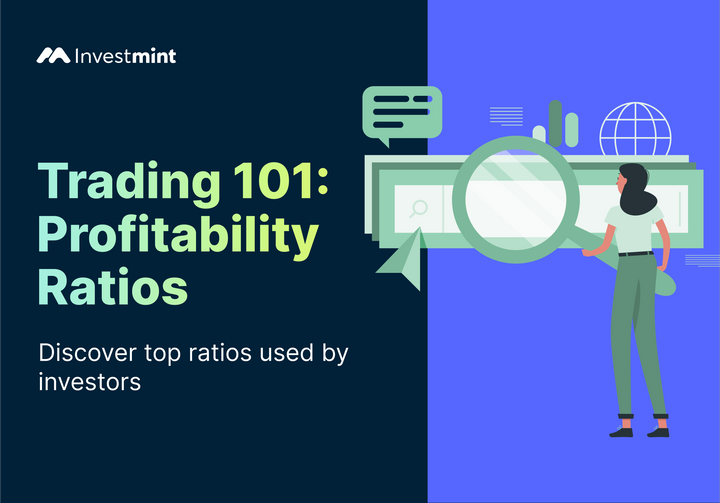Guide to Trading Systems - Everything You Need to Know
Trading systems revolutionise stock markets, empowering all to profit. Algorithms dominate in developed markets, highlighting their significance.

Introduction
Trading systems - the new age tool to ace the stock market game has changed the way people look at stock markets now. Even someone who knows nothing about the stock markets can use these tools and make huge profits.
With the rise of technology and advanced algorithms, understanding how trading systems in stock exchanges work has become crucial for traders and investors.
Recent reports indicate that computer algorithms facilitate over 80 to 85% of trading in developed markets. In India specifically, more than 50% of trades are executed through computer algorithms. These statistics underscore the escalating dependence on trading systems in financial markets.
Armed with the right knowledge and tools, one can adeptly navigate the dynamic realm of financial markets. Let's delve into a comprehensive understanding of trading systems and how they function.
What Is A Trading System?
A trading system acts as an intelligent and automated assistant that assists in making informed and potentially profitable trades. It operates on a set of rules and strategies, aiding traders in their buying and selling decisions within the markets.
Instead of relying solely on intuition or guesswork, traders can create a trading system to handle the heavy lifting. This system monitors markets, analyses data, and generates signals indicating the opportune moments to buy or sell.
Trading systems can be as simple as following a particular indicator, like a moving average, or as complex as using advanced algorithms to analyse multiple indicators and patterns. They can even focus on different strategies, such as riding trends, spotting reversals, or even taking advantage of statistical patterns.
Trading systems take away the emotional aspect of trading and help you stick to a disciplined approach and avoid costly mistakes.
What Is The Importance Of A Trading System?
You might wonder why even experienced traders rely on trading systems. The benefits they offer are immense, not only for beginners but also for seasoned trading professionals in India.
- With a trading system in place, you can maintain consistency in your trading approach.
- A trading system helps remove emotions from the equation, promoting objective decision-making based on predetermined rules and indicators.
- Algo trading system automates the decision-making process, saving time and effort.
- Algo trading systems often incorporate risk management techniques, such as setting stop-loss orders or diversifying portfolios.
- Trading systems can be backtested using historical data, giving you insights into past performance.
- Trading systems provide a rational and systematic approach, eliminating human biases and promoting a more disciplined and rational trading mindset.
- Whether you're a day trader, swing trader, or long-term investor, you can tailor the system to align with your goals and adapt to changing market conditions.
- Trading systems instil confidence in traders by providing a proven framework to rely on. Knowing that you have a well-designed system can boost your confidence and help you navigate the markets with a sense of assurance.
Ultimately, algo trading systems aim to enhance the chances of making profitable trades by employing a systematic and disciplined approach.
What Is A Discretionary Trading System?
A discretionary trading system involves trading decisions based on the trader's judgment and subjective analysis of market conditions. It allows for a flexible and intuitive trading style, enabling decisions to be made on a case-by-case basis rather than relying solely on predefined rules or algorithms.
To understand how a discretionary trading system works, let us take an example.
For instance, while watching the stock market, a trader might notice a company that recently released a groundbreaking product. With a discretionary trading system, the trader considers various factors like the company's performance, market sentiment, and personal intuition rather than relying on specific algorithms or rules.
Based on your analysis, you decide to buy shares in that company because you believe it's a golden opportunity. You don't have a specific algorithm telling you when to buy or sell. It's your judgment and experience guiding your decision-making process.
Advantages And Disadvantages Of Discretionary Trading System
| Advantages | Disadvantages |
|---|---|
| Flexibility to adapt to market conditions and trends | Subjectivity and Potential for biased decision-making |
| Incorporation of trader's experience and expertise | Lack of consistency in trade execution and strategy |
| Ability to react quickly to significant news events | Emotion-driven decision-making and potential for impulsive trading |
| Real-time market analysis and adjustment of strategies | Time-consuming due to continuous monitoring and analysis |
| Dynamic risk management based on market conditions | Difficulty in objectively evaluating system performance |
| Development of emotional intelligence and discipline | Dependency on the trader's skill and experience |
| Potential for unique insights and capturing unconventional opportunities | Vulnerability to psychological biases and external influences |
What Is A Mechanical Trading System?
A mechanical trading system, also known as a rule-based trading system in India, relies on specific predefined rules and conditions to determine when to enter or exit trades. This approach takes a more systematic and objective stance, removing subjective judgment from the decision-making process.
For example, a mechanical trading system designed to identify trend reversals in a stock might dictate, "If the stock's price crosses above its 50-day moving average and the relative strength index (RSI) is above 70, then sell the stock."
Advantages And Disadvantages Of Mechanical Trading System
| Advantages | Disadvantages |
|---|---|
| Objective and rule-based decision-making | Lack of adaptability to dynamic market conditions |
| Consistency in trade execution and strategy | Limited human discretion |
| Backtesting and historical analysis for system evaluation | Risk of over-optimization and curve fitting |
| Removal of emotional biases from trading decisions | Dependency on historical data for system performance |
| Reduced time commitment for trade execution | Complexity and technical expertise required for system development |
| Scalability for managing multiple trades or portfolios | Technical failures and system errors |
| Efficient scanning of multiple markets and timeframes | Dependency on internet connectivity and data feeds |
| Risk management based on predefined rules | Limited adaptability to unexpected news events |
What Is An Automated Trading System?
An automated trading system, also known as algorithmic trading or black-box trading, executes trades in financial markets using computer algorithms.
With this type of trading system, you, as the trader, can develop a set of rules or strategies based on your analysis of the market. These rules can be as straightforward or as complex as you want. For example, you might create a rule that says, "If the price of Company X reaches Rs. 100, buy 100 shares." Or you could have a more advanced strategy that considers multiple indicators, patterns, or market conditions.
The software then continuously monitors market data and assesses whether the conditions for trade are met according to your predefined rules.
When the conditions align, the automated trading system triggers a trade.
And the best part? The system executes the trade automatically without you manually clicking any buttons.
Advantages and Disadvantages Of Automated Trading System:
| Advantages | Disadvantages |
|---|---|
| Increased speed and efficiency in trade execution | Technical failures and system errors can disrupt trading activities |
| 24/7 market monitoring and rapid response to opportunities | Complexity and technical expertise required for system development |
| Consistent execution of predefined trading rules | Risk of over-optimization and overly specific system performance |
| Diversification across multiple markets, securities, or strategies | Limited intuition about markets as compared to human traders |
| Scalability for managing multiple trades or portfolios | Vulnerability to market risks |
What Are The Key Components Of Trading Systems?
When it comes to trading systems in India, there are a few essential things that need consideration. Let's dive in and explore these components together:
- Technical Analysis: It involves studying charts, patterns, and indicators to predict market movements, identifying support and resistance levels, and determining entry and exit points.
- Fundamental Analysis: This part involves digging into the nitty-gritty of a company or the broader economy. You look at financial statements, news events, and other factors that could affect the value of a stock or market.
- Risk Management: Risk management is all about protecting your hard-earned money. It entails setting limits on how much you're willing to risk on a trade, determining the size of your positions, and establishing stop-loss levels to prevent significant losses. It's designing a safety net that keeps you from averting the worst if things don't go as planned.
- Trade Entry and Exit Rules: This is where you define the rules of engagement for your trades. For instance, you might have a rule that says, "Buy when the stock price crosses above the 50-day moving average." Having clear and objective entry and exit rules helps keep your trading consistent and takes the guesswork out of the equation.
Things To Know Before Trying Any Trading System
For those curious about trading systems in the stock exchange and keen on trying them, consider these key points:
- Before diving into any trading system, take the time to grasp the fundamentals of trading. Learn about different financial markets, trading terminology, and the mechanics of buying and selling securities.
- Consider using simulated trading platforms or paper trading accounts to practice your trading system without risking real money. This way, you can test your strategies, understand how the market behaves, and gain confidence.
- Trading is not a guaranteed get-rich-quick scheme. It takes time, effort, and experience to become consistently profitable. Focus on long-term success rather than chasing short-term gains.
- Remember, preserving your capital is key to staying in the trading game. Determine how much capital you're willing to risk on each trade, set stop-loss orders to limit potential losses, and diversify your portfolio to mitigate risks.
- Take baby steps and invest small when implementing a new trading system. As you gain confidence and experience positive results, you can gradually increase your position sizes.
- Mastering the art of emotional control in the face of market fluctuations is crucial for a trader. Fear and greed can cloud judgment and lead to impulsive actions. Develop self-awareness and discipline to stick to your trading system even when emotions try to sway you.
- Rome wasn't built in a day, and successful trading takes time. Stay patient, persistent, and committed to refining your trading system. Learn from setbacks, adapt your strategies, and keep pushing forward.
Final Thoughts!
We hope you learned a lot about what is a trading system and how the trading systems in India are operating. Now that you have a basic understanding of how trading systems in the stock exchange work, you can go on to set foot in the field and explore the market for yourself.
FAQs
Q. Which trading system is the best?
A1: The "best" trading system in the stock exchange varies depending on individual preferences, risk tolerance, and trading goals. What works for one person may not work for another. However, some popular trading systems include trend-following systems, breakout systems, and mean-reversion systems.
Q. What are the three types of trading systems?
A2: The trading system types are discretionary, mechanical, and automated.
Q. What is the safest trading strategy?
A3: The concept of a "safest" trading strategy can be subjective, as trading inherently involves risk. However, strategies prioritising capital preservation and risk management are generally considered safer.



